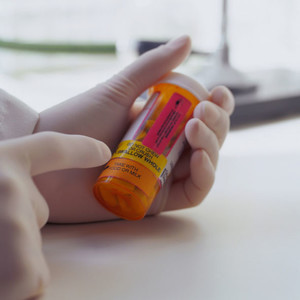Repurposing generic drugs for new indications could save time and money compared to developing new treatments and represent a cost-effective way of addressing unmet medical needs, argues a new article by a University of Michigan professor [1].
A newly published article sets out the case for repurposing already approved drugs [1]. The article, authored by a researcher focused on drug discovery and development at the University of Michigan in the US, states that finding new uses for drugs that have already been approved could significantly reduce the time and costs associated with new drug development.
The author illustrates this with two examples: thalidomide and drugs repurposed for the treatment of COVID-19.
The small molecule drug thalidomide was originally approved as a treatment for morning sickness in pregnant women but caused devastating birth defects in around 10,000 infants. It was banned worldwide in the 1960s but was later repurposed as a treatment for multiple myeloma, following the discover that thalidomide inhibits the process of angiogenesis, which is essential for tumour growth.
Thalidomide has also been combined with other compounds to create a class of compounds called PROTACs, which can entirely destroy a molecular target, increasing drug effectiveness and reducing the likelihood of drug resistance. A number of clinical trials are currently underway testing PROTACs as a treatment for cancer.
Drug repurposing has also been particularly active during the COVID-19 pandemic [2, 3], including through large-scale drug screening and artificial intelligence, data mining-led approaches. Notable successes include the generic antidepressant fluvoxamine, which was shown to reduce the risk of hospitalization from COVID-19 by 32%. Fluvoxamine has not been given emergency use authorization by the US Food and Drug Administration (FDA) but physicians can still prescribe the drug ‘off-label’ to treat COVID-19, as they can with other generic drugs.
However, there are obstacles to the repurposing process, including financial and logistical barriers to market entry. The article states that repurposing is most likely to be successful with generic drugs, as they do not have patents restricting their use for other indications.
There is also less opportunity for profit with generic drugs, as less patent protection means more competitors can enter the market and manufacturers ultimately make less profit.
This means drug repurposing is mostly studied in academic institutes rather than through commercial entities, which have limited resources to fund the costly FDA approval process.
The author argues that drug repurposing can ‘fill the gap’ when the pharmaceutical industry cannot justify developing a new drug because of low return on investment. He suggests that federal support should be put in place to incentivise companies to enter the marketplace with repurposed drugs, which are a cost-effective mechanism to address unmet medical needs.
The article follows the news that in Europe the European Medicines Agency and Heads of Medicines Agencies have launched a pilot project specifically to support the repurposing of medicines [4]. The project will support not-for-profit organizations and academic institutes in providing evidence for repurposing drugs. The project aims to make new treatment options available to patients without the need to develop new drug products.
GaBI Journal Citation Impact
1.9 – CiteScore 2020 (calculated on 5 May 2021)
2.2 – CiteScoreTracker 2021 (Last updated on 6 April 2022)
Submit a manuscript to GaBI Journal
Related articles
Technological approaches to drug repurposing for cancer treatment
Europe calls for more drug repurposing
New use for old generic could treat rare cardiovascular condition
References
1. Sexton J. (2022). Repurposing generic drugs can reduce time and cost to develop new treatments – but low profitability remains a barrier. The Conversation. 2022 April 6.
2. GaBI Online - Generics and Biosimilars Initiative. COVID-19 drug trials underway [www.gabionline.net]. Mol, Belgium: Pro Pharma Communications International; [cited 2022 May 16]. Available from: www.gabionline.net/pharma-news/COVID-19-drug-trials-underway
3. GaBI Online - Generics and Biosimilars Initiative. COVID-19 drugs: Gilead’s remdesivir and Algernon’s alternative [www.gabionline.net]. Mol, Belgium: Pro Pharma Communications International; [cited 2022 May 16]. Available from: www.gabionline.net/generics/news/COVID-19-drugs-Gilead-s-remdesivir-and-Algernon-s-alternative
4. GaBI Online - Generics and Biosimilars Initiative. Medicines repurposing project launched in Europe [www.gabionline.net]. Mol, Belgium: Pro Pharma Communications International; [cited 2022 May 16]. Available from: www.gabionline.net/generics/general/medicines-repurposing-project-launched-in-europe
Permission granted to reproduce for personal and non-commercial use only. All other reproduction, copy or reprinting of all or part of any ‘Content’ found on this website is strictly prohibited without the prior consent of the publisher. Contact the publisher to obtain permission before redistributing.
Copyright – Unless otherwise stated all contents of this website are © 2022 Pro Pharma Communications International. All Rights Reserved.








 0
0











Post your comment